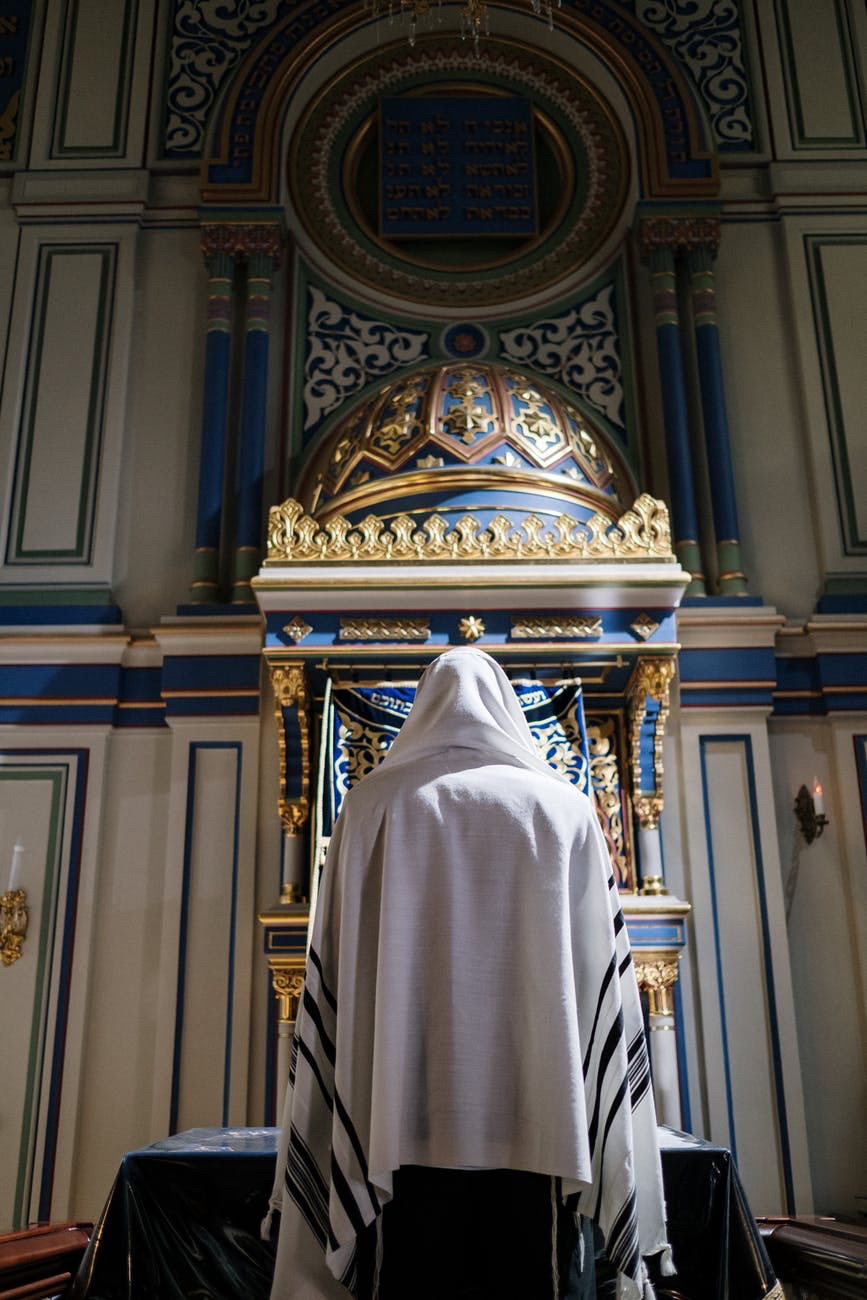Cast Away Your Sins
כִּֽי־בַיּ֥וֹם הַזֶּ֛ה יְכַפֵּ֥ר עֲלֵיכֶ֖ם לְטַהֵ֣ר אֶתְכֶ֑ם מִכֹּל֙ חַטֹּ֣אתֵיכֶ֔ם לִפְנֵ֥י יְהֹוָ֖ה תִּטְהָֽרוּ׃
Vayikra 16: 30
For on this day atonement shall be made for you to cleanse you of all your sins; you shall be clean before HaShem.
Every year it’s the same story. The same machzor. The same prayers. The same pleading, beating of the chest, and bowing in broken humility. The same fear, dread, and desire to not die a horrible day. Not by fire. Not by water. Not by strangulation. Or is it?
This narrative paints the picture of a vicious ruler, one who is an angry all-powerful being that hates us and wants us to die for our sins. It’s comical that many Jews approach HaShem in this way, since this isn’t a Jewish concept at all – it’s a Christian one.
Leading up to Rosh Hashanah, we recite Selichos in the morning. These penitentiary prayers reflect the forgiving nature of HaShem in contrast to our own physical nature. We aren’t fallen beings, so we can’t use that terminology. Rather, we are an enigmatic dichotomy. Our guf, our body, desires base things. Satisfaction. Comfort. Taste. Relief. And yet our soul does not. It wants Torah. Spirituality. Transcendence. Thus comes the yetzer hara and presents us with challenges so we can refine our guf and bring a tikkun to it. After all, that’s why we are here.
So this process isn’t one of us sinning repeatedly and being severely punished for it. We have to see the bigger picture. HaShem doesn’t have an “eternal damnation” awaiting sinners. Why is that? Because he is truly good, and truly forgiving. The Thirteen Attributes, which we call upon during Selichos, Rosh Hashanah, and Yom Kippur, reflect this essential nature of our Creator…
וַיַּעֲבֹ֨ר יְהֹוָ֥ה ׀ עַל־פָּנָיו֮ וַיִּקְרָא֒ יְהֹוָ֣ה ׀ יְהֹוָ֔ה אֵ֥ל רַח֖וּם וְחַנּ֑וּן אֶ֥רֶךְ אַפַּ֖יִם וְרַב־חֶ֥סֶד וֶאֱמֶֽת׃ נֹצֵ֥ר חֶ֙סֶד֙ לָאֲלָפִ֔ים נֹשֵׂ֥א עָוֺ֛ן וָפֶ֖שַׁע וְחַטָּאָ֑ה וְנַקֵּה֙.
Shemos 34: 6-7
HaShem passed before him and proclaimed: “HaShem! HaShem! a G-d compassionate and gracious, slow to anger, abounding in kindness and faithfulness, extending kindness to the thousandth generation, forgiving iniquity, transgression, and sin.
If we grasp the concept that HaShem is compassionate, gracious, potential, kind, faithful and forgiving, then the pshat reading of the machzor davening just doesn’t jive. And that’s on purpose. The pshat is to drive one to yiras HaShem – a basic fear of G-d. Through this fear, one will repent and change their ways. But when we dive deeper, we see this is click-bait. The Torah isn’t tell us to fear HaShem – it’s telling us to love Him, and through developing a greater love, we can have a reverence or respect for HaShem. But to get there, we start with fear.
Yes, one must to teshuvah. There are significant consequences for not doing it. We need to make a tikkun for everything that we can. But the power of teshuvah on Yom Kippur, according to the Nesivos Shalom, is that it can bring a three-fold atonement for the schmutz we got on ourselves with our aveiros…
לְכוּ־נָ֛א וְנִוָּכְחָ֖ה יֹאמַ֣ר יְהֹוָ֑ה אִם־יִהְי֨וּ חֲטָאֵיכֶ֤ם כַּשָּׁנִים֙ כַּשֶּׁ֣לֶג יַלְבִּ֔ינוּ אִם־יַאְדִּ֥ימוּ כַתּוֹלָ֖ע כַּצֶּ֥מֶר יִֽהְיֽוּ׃
Yeshaya 1:18
“Come, let us reach an understanding, —says the LORD. Be your sins like crimson, They can turn snow-white; Be they red as dyed wool, They can become like fleece.”
A powerful marker of this deeper meaning – this call to love and connect – can be found with the popular reading on Yom Kippur. It is customary to read Sefer Yonah – the Book of Jonah – on this day. But why is that? Among other reasons, to prove the point that HaShem wants us to choose good and do it, and to bring healing to the world…
וַיַּ֤רְא הָֽאֱלֹהִים֙ אֶֽת־מַ֣עֲשֵׂיהֶ֔ם כִּי־שָׁ֖בוּ מִדַּרְכָּ֣ם הָרָעָ֑ה וַיִּנָּ֣חֶם הָאֱלֹהִ֗ים עַל־הָרָעָ֛ה אֲשֶׁר־דִּבֶּ֥ר לַעֲשׂוֹת־לָהֶ֖ם וְלֹ֥א עָשָֽׂה׃
Yona 3:10
HaShem saw what they did, how they were turning back from their evil ways. And HaShem renounced the punishment He had planned to bring upon them, and did not carry it out.
A tikkun is a reparation. We often see this used with the phrase “Tikkun Olam.” Used by many to justify movements of social justice and environmentalism (which aren’t bad in and of itself), this concept misses the mark and intent. Our Tikkun Olam is of a spiritual means, not just physical. To fix the world by recycling and not acknowledge the own work to do within ourselves is pshat. We need to dig deeper, and Aseres Y’mei Teshuvah motivates us to connect to this opportunity.
Now is your chance to make a tikkun by finding an fresh lens of connecting to HaShem. Not on of fear and trepidation, but one of reverence, jaw-dropping awe, and raw love.
Wishing you a good year and may you be inscribed in the book of life,
Reb Yoni

